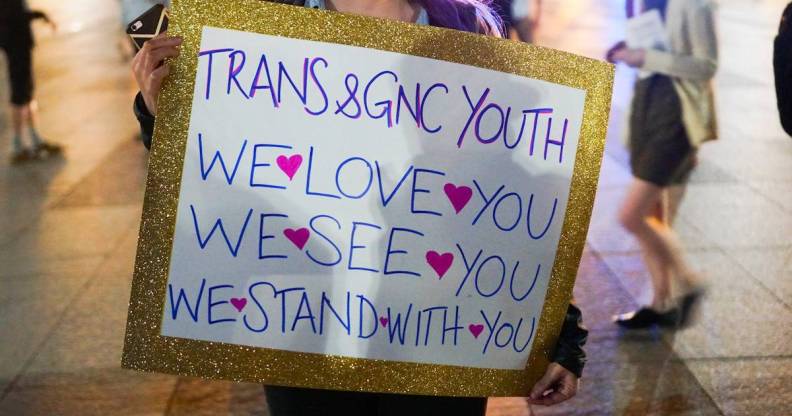This is how to be a staunch and unequivocal ally to trans and non-binary youth

For Trans Day of Visibility, The Trevor Project has released its first-ever guide to being an ally to trans and non-binary youth.
The Trevor Project is the world’s largest organisation focused on crisis and suicide prevention for LGBT+ youth.
The Guide to Being an Ally to Transgender and Non-binary Youth covers topics like the difference between sex and gender, pronoun, gender expression, common mistakes and what to do if you’ve made one.
According to The Trevor Project: “It can be tough for trans and non-binary people to bear the burden of educating others about their lived experiences.
“This handbook will help allies begin their education on the basics of gender identity and expression to help increase public understanding and foster the creation of a safer, kinder, and more accepting world.”
The guide reminds anyone who wants to be a better trans ally that “respecting the language that youth use to self-identify their gender is not only polite, it can save lives”.
Trans people are at a much greater risk of mental health problems, and this is often linked to others refusing to affirm their identity.
Consistently using the correct name and pronouns for trans people can reduce their rates of anxiety, depression and suicidal thoughts to almost the same levels as their cisgender counterparts.
Be careful not to tell others how you think they should or shouldn’t label their gender. Gender is a personal experience.
However it adds: “Gender is complicated, and there shouldn’t be a limit to the number of words you use to describe your experience of your gender.
“If your gender is fluid, sometimes it can feel more liberating to not label yourself. For others who are questioning or exploring their gender, going without a label is more comfortable than committing to one right away.
“Be careful not to tell others how you think they should or shouldn’t label their gender. Gender is a personal experience. There is no right or wrong way to define your gender, and it’s OK if you don’t want to label yourself either.”
The Trans Day of Visibility guide encourages people to stand up for others if they witness a trans or non-binary person being intentionally misgendered.
It also provides helpful steps for making things right if a trans ally makes “common mistakes such as forgetting a person’s pronouns, using their birth name instead of their chosen name, or misgendering a person”.
While it is easy to feel ashamed and avoid discussing the fact that you’ve hurt someone, a trans ally should “listen and seek to understand and empathise with the other person’s lived experience”.
This should be followed by taking responsibility for your actions, apologising, and committing to do better next time.
The Trevor Project writes: “Learning is an ongoing experience, so it’s okay to acknowledge that you might not know some things, even after reading this guide.
“Part of being a good ally is continuing your education, and we’re happy to be part of that journey with you.”

